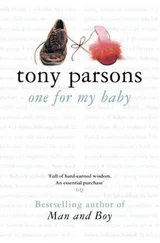When I awoke I was on Dr Baggio’s couch and Eamon was sitting by my side, his face creased with concern. Dr Baggio had wrapped something around my arm.
I realised she was taking my blood pressure.
’Did your father suffer from hypertension?’
My dad’s face swam before my eyes. ’What?’
’Your blood pressure is 195 over 100.’
’Fuck me, Harry,’ said Eamon. ’You’re the sick one, not me.’
’Do you understand what that means?’ asked Dr Baggio. ’It’s very serious. The first number is the systolic pressure – the pressure in the arteries when your blood is pumping – and the second number is the diastolic pressure – when the heart is resting, filling with blood before its next contraction. Your blood pressure is dangerously high. You could have a stroke. Did your father have high blood pressure, Mr Silver?’
I shook my head, trying to take it all in.
Ill
’I don’t know,’ I said. ’He didn’t even tell us when he had lung cancer.’
I knocked on Gina’s door, even though I knew she wasn’t home. And I wondered what I was doing here. I knew it was for something that I couldn’t find at home. But I didn’t know what. Not yet.
Kazumi’s almond-eyed face appeared above the safety latch. She pushed back that torrent of swinging black hair. ’Yes?’
’Is Gina around?’
’Gina is gone.’ I was surprised how little accent her English had. Just a soft burr that sounded almost Scottish. ’Gina not here any more.’
’Ah, of course.’ I looked up and down the street, shaking my head, as if suddenly remembering something. Then I looked back at Kazumi and smiled. Tm Harry.’
’Harry? Not – Gina-san’s Harry?’
Gina-san. Honourable, respected Gina. I hadn’t learned a lot of Japanese in five years of marriage to a Nihon-obsessed wife, but I knew this much.
’That’s me.’
For the first time I saw her smile. It was like some magic light coming on in the world.
’I’ve heard about you. Of course. Gina-san’s former – I mean, Pat’s father, yes?’
’The very same.’
’Sakamoto Kazumi,’ she said. Wherever she learned to speak English with a Scottish accent, she was still Japanese enough to give me her family name first. ’Staying here. Until the new people move in. Keeping eye on the place. And very convenient for me. Very lucky.’
’Kazumi? Did you take those pictures of my son?’
She smiled again. I couldn’t take my eyes off her. ’The very same,’ she said. Funny, too.
’I loved them. I mean it. Incredible. You really caught him.’
’No, no. Just taken quickly in the garden.’Japanese modesty,
Despite the Scottish accent and good English. She nodded briefly, emphatically, a gesture that seemed so Japanese to me. ’He’s a beautiful boy,’ she said, and I knew she wasn’t being polite. She meant it. You could see it in those photographs.
This stranger thought my son was beautiful.
’But you must know that Gina-san is in America with her with Richard. And with Pat-kun.’
Pat-kun. The affectionate honorific touched my heart. Dear, sweet, little Pat, she was saying. My first wife had taught me more than I realised.
’I forgot,’ I said. ’Sometimes I forget things.’
That was a lie, of course. But everything else was true, all that stuff about the brilliance of her photographs. And it was also true that she had a way of making me forget things.
Like where I was meant to be, and who I was meant to call, and the fact that I was married.
Kazumi took me in and gave me tea. She didn’t have to do any of that, but she said she felt like she knew me already.
Kazumi had been Gina’s best friend in Japan. They had shared a tiny flat in Tokyo for a year. Gina was planning to return to Japan, to make the move permanent. And then she met me. Kazumi knew all about that. If she also knew about the reasons we didn’t live happily ever after, and she must have done, she was far too polite to mention it.
’Her boys,’ Kazumi said. ’That’s what she always called you and Pat. Her boys.’
Not any more, I thought. But I felt a rush of gratitude that we could sit in Richard and Gina’s house, sipping green tea, and Kazumi could say out loud that once upon a time I had mattered to her friend.
And she told me her story. Not all of it. But enough for me to know that she had been an interior designer in Japan who had always dreamed of being a photographer. Western photography obsessed her. Weber, Newton, Carrier-Bresson, Avedon, Bailey. For as long as she could remember, that was what she wanted to do with her life, to look at the world and record what she saw. And then something happened in Tokyo – she didn’t say what, but I guessed it had something to do with a man – so she caught a plane to Heathrow, left the old life behind.
It turned out that the Scottish accent came from three years at university in Edinburgh when she was in her late teens and early twenties, not long after sharing noodles, an apartment and a life in Tokyo with Gina for a year.
’Always wanted to study in Edinburgh,’ Kazumi said. ’Ever since I was little children size.’ The perfect English had only tiny fault lines in the language, making it sound impossibly charming. ’Very beautiful. Very ancient.’
Her stay there must have overlapped with the early years of my marriage to Gina, and I expressed surprise that we hadn’t met back then.
’Gina-san was very busy in those days. Very busy with her two boys.’
But I knew it was more than that. In the early part of our relationship, Gina and I thought that we were completely self-sufficient. We honestly believed that we didn’t need anyone else. Not even our oldest and dearest friends. We let everyone drift away. It was only when everything fell apart that we saw how wrong we had been.
’Who was that man, Kazumi? The man in the garden? The one who was crying?’
I knew I was pushing it. But I was curious about this beautiful, self-contained woman who could inspire nervous breakdowns on her garden path.
’Ah. Crying man? That was my husband.’ She thought about it. ’Ex-husband.’
Then she was on her feet. She had told me enough. Too much, perhaps.
’You want to see more photo of Pat? Just had contact sheet develop.’
We went up to Gina’s old study. The house was almost empty now. The only things that were here belonged to Kazumi.
She spread a sheaf of eight by tens out on the floor. She was technically brilliant. Composition, clarity, her choices all seemed sublime to my layman’s eyes. The monochrome images of my son goofing around in the garden perfectly captured the fleeting moments of his childhood. And although the photos were all black and white, they were infused with real warmth. I felt again that she liked my son.
’Why did you leave Tokyo?’
Strangely, I want to know more. I want to know why she is so far from home, a story that I suspect has nothing much to do with Henri Cartier-Bresson or Robert Capa.
’I was like Gina.’
’How’s that?’
’ Shufu .’
I had picked up scraps of Japanese over the years. But not enough. I was guessing now.
’A… mother?’
’No, no. That’s oka -san. Shufu means literally Mrs Interior.’
’Mrs Interior?’
’Housewife, they say England. Homemaker, they say America. In Japan – shufu . But Gina wanted to be sbufu . No?’
’Yes, I guess. For a while.’
Until she decided she wanted her life back.
’My husband wants me to be shufu . I don’t want it so much!’
She seemed to find it highly amusing. But I didn’t know if it was the very idea of her being a housewife that tickled her funny bone, or if it was the job description of Mrs Interior. Or perhaps she was just covering her embarrassment.
Читать дальше
Конец ознакомительного отрывка
Купить книгу











